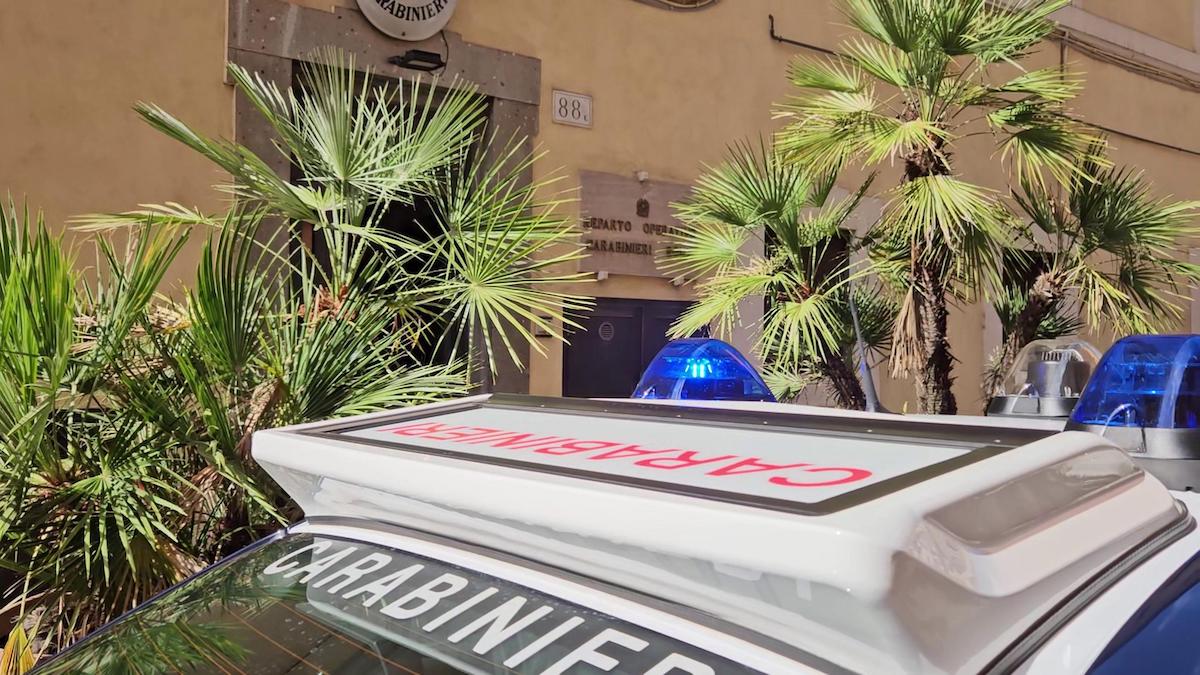In Italian classes, around 70% of students of non-Italian nationality were born in our country. Boys and girls who grow up with their peers, considered foreigners by the law. Italians in fact, but not by law. Among them, there is also Sarah (whose name I am omitting as a protective measure), daughter of Tunisian immigrants, born in Sicily in 2003. Her parents decided to settle, with the required papers, in Catania in 2002. Eight years later, the father of the young people “due to constant arguments with his wife”, we read in the documents consulted by Open, leaves the island and returns definitively to Tunis “arbitrarily taking his daughter with him”. The man tricks the little girl “so that they spend time together and takes her back to her mother’s house in the evening.” However, he does not show up at his house at the agreed time; his ex-wife contacts him on his cell phone and the little girl tells him that she is on a boat. The complaints and complaints filed against her ex-husband for the crime of “kidnapping incapable persons” and for the threats received if the woman did not return with him were of no use. Not having obtained the latter's consent, the mother was not able to bring her daughter back to Catania. “I’m afraid for Sarah,” he emphasizes. Also because the young woman does not have a passport and is monitored from a health point of view: every morning, she has to take a pill to regulate her platelets, explains her mother.
The trip to the Mediterranean
In 2021, Sarah reaches the age of majority, which allows her (at least on paper) to make independent decisions. Ignoring the dangers, she takes a boat and, with a group of migrants, reaches the Sicilian coast in 14 hours on August 19, 2023. She wants to return to Catania, to what she defines as “her home”, to her city. mother and her brothers. Six days later, she was taken to Trapani where the police commissioner served her with a refusal order and an order to leave Sicily. Sarah does not have Italian nationality and is therefore considered by law to be a foreigner who entered the country illegally. “All visa applications were inexplicably refused and so the young woman had no choice but to be able to take a crowded dinghy and risk her life at sea just to get to Catania and reunite with her family,” he explains. -she has Open his lawyer, Giuseppe Lipera.
The bureaucratic ordeal
The lawyer contests the expatriation order before the Catania magistrate. The latter issues the decree by which he simply declares his territorial incompetence. For the lawyer, the magistrate's decision “is unfair and results from a poor application of the rules because it violates the general principles of our system”, underlines the defense. “It is a coincidence that the young woman was taken to Trapani by the police and then released there. If this young girl had been taken to Rome, should she have appealed to Rome?” asks the lawyer. The judge's decision was contested by the defense itself before the First Civil Chamber of the Court of Catania . Sarah was born in Catania, her life is there. She left her family “only because she was kidnapped by her father”, explains Lipera. That's not all: the young woman's mother, in order to obtain a visa or residence permit for her daughter, provides the competent authorities with all documents demonstrating that she is able to care for her daughter (from suitable accommodation to financial insurance, including maintenance even remotely).
The first hearing, Monday February 19
During the first hearing, Monday February 19, Judge Rosario Maria Cutri postponed the decision on this case. The public prosecutor, on behalf of the Trapani police headquarters which issued the expulsion order against Sarah, requested confirmation. Lawyer Lipera, on the contrary, contests the judgment, requests its annulment and shows in the courtroom the photos of the young girl determined to play with her three brothers and her mother, at home and by the sea in Sicily. “The concrete situation in which Sarah finds herself – reiterates the lawyer – is not governed by any law, so it must be resolved with common sense. The criminal lawyer also files a complaint for defamation against the representative of the public prosecutor's office, contesting the sentence according to which “it is good, however, to immediately dispel any doubt in relation to the rambling ruminations (insane, absurd, delusional speech, ed) – with more political than legal value – on the girl's citizenship”, which the lawyer considers “absolutely offensive to my personal and professional reputation, in addition to being incorrect, inappropriate and superfluous, given that, In the role play, everyone can express their own dissent, but offending opposing counsel is neither acceptable nor possible,” he explains.
“We must reopen the debate on Ius Soli”
Sarah's story reopens the debate around the macro-theme of citizenship. In Italy, it is issued according to the principle of Ius Sanguinis, a thirty-year-old law based on “filiation”. A substantial reform has been expected for years and, cyclically, the issue is brought back to the table of the legislator. Ius soli, ius scholae, ius culturae are part of the various legislative proposals presented to Parliament. The legislative process never resulted in reform. However, reality has profoundly changed since 1992. For the lawyer, it is therefore necessary to reopen the debate on Ius soli (citizenship acquired by being born on the territory of the State) defined by him “as the absolute natural right of the young woman born in Catania and where she lived”. for most of his life and where he has his family. » It is therefore in Catania “that Sarah has the right to stay”, believes the lawyer. “Is it possible that Italy remains so far behind” when it comes to citizenship? In recent months, the young woman's defense sent a letter to Prime Minister Giorgia Meloni asking him to intervene in the regulatory void in order to grant Italian citizenship to the young woman. “I have not yet received a response,” confides the lawyer. Expelling Sarah would amount to depriving her forever of her (and only) family lawyers and her personal identity, “absolute fundamental rights and – he concludes – recognized by the founding fathers of art. 2 of the Constitutional Charter”.
Cover photo: ANSA/SEA WATCH | Rescue of migrants off the coast of Sicily


